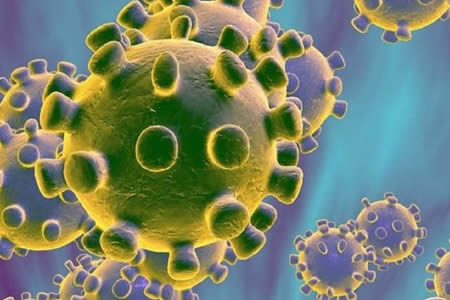Researchers have identified a fully human monoclonal antibody that prevents SARS-CoV-2 from infecting human cultured cells.
Monoclonal antibodies are man-made molecules that mimic human antibodies in the immune system. As is the case with normal human antibodies, they bind to antigens on the surface of pathogens such as viruses and trigger the immune system to attack them.
In this case, the fully human monoclonal antibody has been shown to prevent SARS-CoV-2 and SARS-CoV from infecting cells by neutralizing a communal epitope on the surface of the viruses. Because the monoclonal antibody is fully human, development can proceed as a faster pace as there is less potential for immune system side effects.
The monoclonal antibody was discovered by researchers at Utrecht University, Erasmus Medical Center and Harbour BioMed (HBM). “This discovery provides a strong foundation for additional research to characterize this antibody and begin development as a potential COVID-19 treatment,” said Frank Grosveld, PhD. co-lead author on the study.
Monoclonal antibodies are a promising class of drugs that have been shown to be effective against other viruses. In this case, the antibody targets the trimeric spike (S) glycoproteins on the surface of the viruses. These spike proteins are used by the virus to bind to angiotensin converting enzyme II on the surface of cells, which allows them to gain entry into the cells.
The researchers built on the research conducted on monoclonal antibodies developed to target SARS-CoV. The researchers screened the antibodies that have been shown to be effective at neutralizing SARS-CoV and identified one – 47D11 – that was also effective at neutralizing SARS-CoV-2. The antibody was generated using Harbour BioMed’s H2L2 transgenic mouse technology.
Since the spike proteins on both viruses are very similar (77%), the monoclonal antibody neutralizes both. It is possible that it could also neutralize other viruses from the same Sarbecovirus subgenus of Betacoronaviruses. The researchers found the antibody bound to the S1B receptor-binding domain (RBD) of the spike protein on the viruses, although the exact mechanism is not yet understood.
The antibody could be used for developing antigen detection tests for SARS-CoV-2 and serological assays, and could also serve as a potential treatment for COVID-19, helping an infected person to neutralize and clear the virus much faster.
The discovery is certainly good news. More than 3.77 million people have been confirmed as having contracted COVID-19 and there have been more than 264,000 deaths worldwide. However, it is too early to tell whether the antibody could be used as a COVID-19 treatment in humans. “Much more work is needed to assess whether this antibody can protect or reduce the severity of disease in humans. We expect to advance development of the antibody with partners,” said Jingsong Wang, PhD, founder, Chairman & Chief Executive Officer of HBM. “We believe our technology can contribute to addressing this most urgent public health need and we are pursuing several other research avenues.”
You can read more about the findings in the paper – A human monoclonal antibody blocking SARS-CoV-2 infection – which was recently published in the journal Nature Communications. DOI: 10.1038/s41467-020-16256-y
